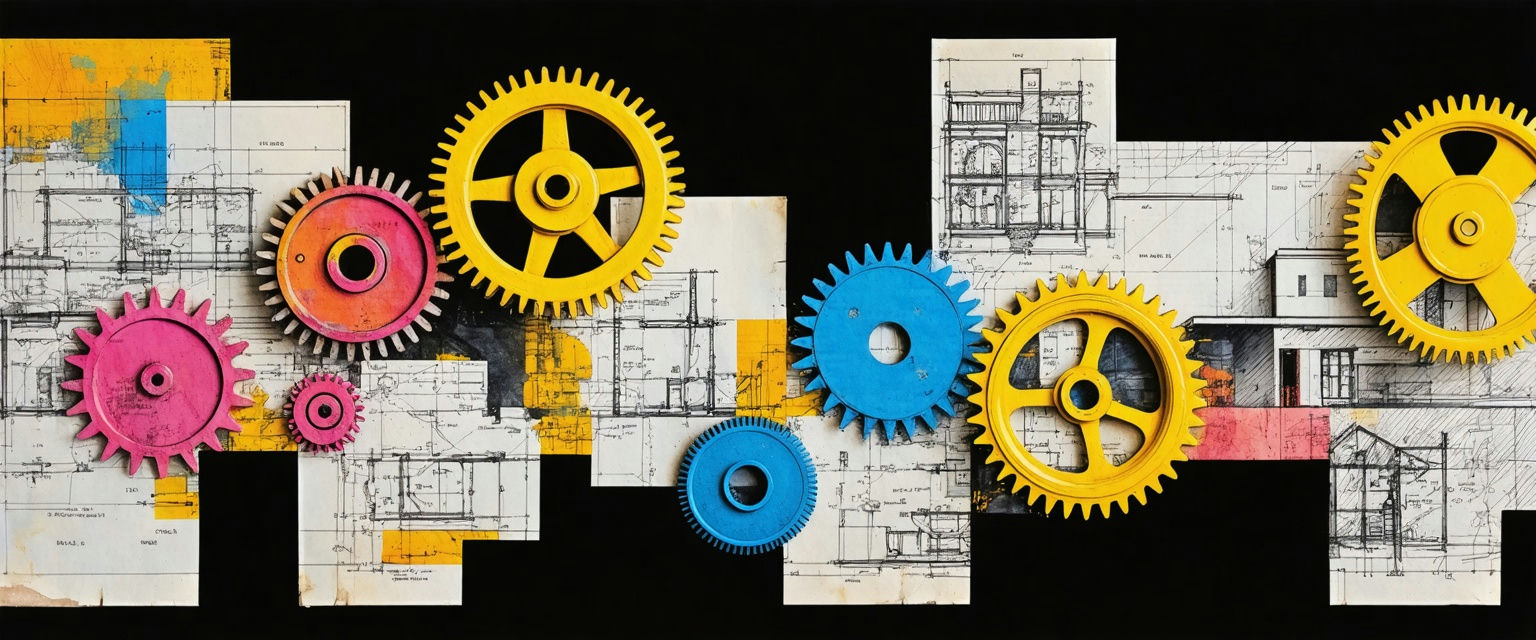Explore how AI automates construction proposals, reducing errors and speeding up processes for project managers. Stay competitive with Datagrid's AI solutions.
Are you overwhelmed by the complexities of construction proposal processing? Tight deadlines, heaps of paperwork, and misaligned communication among stakeholders can derail your projects and inflate costs. Even a minor oversight can lead to significant delays and lost opportunities.
These challenges not only exhaust your resources but also erode your competitive edge. What if you could streamline the entire process, minimize errors, and accelerate your bids? Understanding how AI automates construction proposal processing in construction could be the game-changer you need. Datagrid's data connectors, powered by Agentic AI, offer precisely this solution.
Challenges in Traditional Proposal Processing
Inherent Issues
Processing proposals in the construction industry comes with its own set of hurdles. With numerous stakeholders and ever-changing project requirements, decision-making can grind to a halt. Coordination stumbles, communication lags, and suddenly, information is scattered everywhere.
Project Delays
We all dread delays. Unanticipated site conditions, labor shortages, or regulatory setbacks—they can derail even the best-laid plans. According to a study, 72% of contractors faced delays in 2022. These setbacks not only inflate costs but also strain relationships, making it tougher to secure future work.
Collaboration Complexity
Collaboration gets complicated when architects, engineers, contractors, and clients each have their own priorities. Without a streamlined platform to share information, proposals hit bottlenecks, and confusion persists. Projects end up in a loop of repeated questions and revisions, creating extra work for everyone involved.
Manual Bidding Process Inefficiencies
Let's face it: manual bidding is time-consuming and ripe for errors. Reviewing every detail and matching requirements can lead to oversights, highlighting the need to automate proposal comparisons.
Decisions slow down, and you lose your competitive edge. Industry research shows that automating the bidding process helps companies respond faster and reduces mistakes. By automating proposal comparisons, companies can further streamline the bidding process and reduce the risk of errors.
AI Automates Proposal Processing in Construction
AI systems use advanced algorithms to interpret data from various sources—both structured and unstructured. Techniques such as Retrieval Augmented Generation enable AI to provide more accurate and contextually relevant outputs.
- Automated Data Extraction: Tools leverage Natural Language Processing (NLP) to find relevant information in documents like PDFs and blueprints, saving time and reducing human error. By automating PDF parsing, these tools can quickly extract the necessary data. AI tools for proposal extraction are essential components in this process.
- Proposal Generation: AI taps into extracted data to draft proposals. It cross-references client requirements, budgets, and compliance standards to deliver a coherent plan. Insights from historical and real-time data produce more accurate, tailored results.
Benefits of AI Integration
By handling data faster, AI frees your team to focus on strategic planning instead of getting buried in administrative tasks. Fewer mistakes mean better credibility with clients, which matters when proposals are time-sensitive and margins are thin.
Additionally, competitor analysis with AI can provide insights that help you position your bids more effectively. AI also refines resource management, ensuring teams and budgets aren't wasted on unnecessary processes.
Step-by-Step Processing of Construction Proposals
Document Management
Solid document management sets the stage for smoother proposal processing. AI tools use Optical Character Recognition (OCR) to scan and categorize contracts, blueprints, and compliance documents through image-to-text conversion. For example, you can data mine a PDF to extract valuable information efficiently.
They tag each file and store it in a central repository, ready for quick retrieval. This automation cuts out the tedious paper shuffling and helps you find what you need in moments. This AI-powered document review enhances efficiency and accuracy in managing your documents.
Proposal Development
Once documents are sorted, AI systems analyze everything—from material costs to labor availability—and generate proposal drafts that shape each bid's content.
Machine learning algorithms compare current data with past projects, weighing factors like local regulations and labor trends to present the best options. This cuts the guesswork and yields a more polished bid in a fraction of the time. Moreover, AI can automate proposal validation and automate verification tasks, ensuring that all compliance standards and client requirements are met before submission.
Impact of AI in Construction Industry
Accuracy Improvement
AI turns raw data into actionable insights, reducing slip-ups. Construction professionals can spot patterns in scheduling, budgeting, and materials that might otherwise go unnoticed.
Good data fuels better decisions, and AI algorithms can quickly highlight strategies for risk mitigation and quality control. This approach helps deliver projects that meet or exceed client expectations.
Efficiency Enhancement
By tracking resource usage in real time, AI identifies underperforming areas and suggests reallocations where they count most. Maintenance is prompted by system-generated alerts, keeping equipment running at full capacity. Productivity gets a boost when workers, materials, and machinery are deployed exactly when and where they're needed.
Workflow Optimization
AI coordinates tasks and prioritizes them based on deadlines, resource availability, and project criticality. If equipment becomes available sooner, AI flags that option for immediate use, avoiding bottlenecks that slow progress. These improvements cut project overruns and reduce the stress of last-minute scrambles.
How Agentic AI Simplifies Construction Task Automation
For project managers juggling multiple tasks, Datagrid’s data connectors and AI agents bring order to the chaos. By syncing with platforms like Procore, PlanGrid, and Autodesk BIM 360, Datagrid centralizes your workflows and saves you from entering data repeatedly.
Imagine connecting your key construction software: RFPs, submittals, and daily reports move seamlessly between tools, drastically cutting the risk of lost information. AI agents can spot inconsistencies in a bid package or highlight a spec that conflicts with your historical data. They can even monitor permit statuses for overlooked deadlines.
Datagrid doesn't stop with connecting construction software. It's compatible with scheduling tools like Microsoft Project or Primavera P6, giving your team real-time insights on schedule shifts and resource availability. It also integrates with financial platforms like Sage 300 or QuickBooks to automatically track costs and forecast budgets.
- Document Management: AI agents analyze incoming submittals, RFIs, and change orders, routing each to the right person. This keeps projects moving and team members accountable.
- Safety Compliance: By linking to safety management systems, Datagrid flags issues with certifications, incident reports, or worker qualifications so you can address them before they escalate.
- Progress Tracking: Daily log updates, photos, and schedules are compiled into automated progress reports. The platform spots potential hold-ups early and sends alerts to relevant teams.
- Financial Integration: Accounting tools feed real-time cost data into the project overview, simplifying budget decisions.
Simplify Construction Proposal Processing with Agentic AI
Ready to revolutionize your construction project management with AI-powered automation? Datagrid is your solution for:
- Seamless integration across all major construction platforms (Procore, PlanGrid, BIM 360)
- AI-driven RFP analysis and bid management
- Automated submittal and change order processing
- Real-time project insights and schedule optimization
See how Datagrid can help you increase process efficiency.













